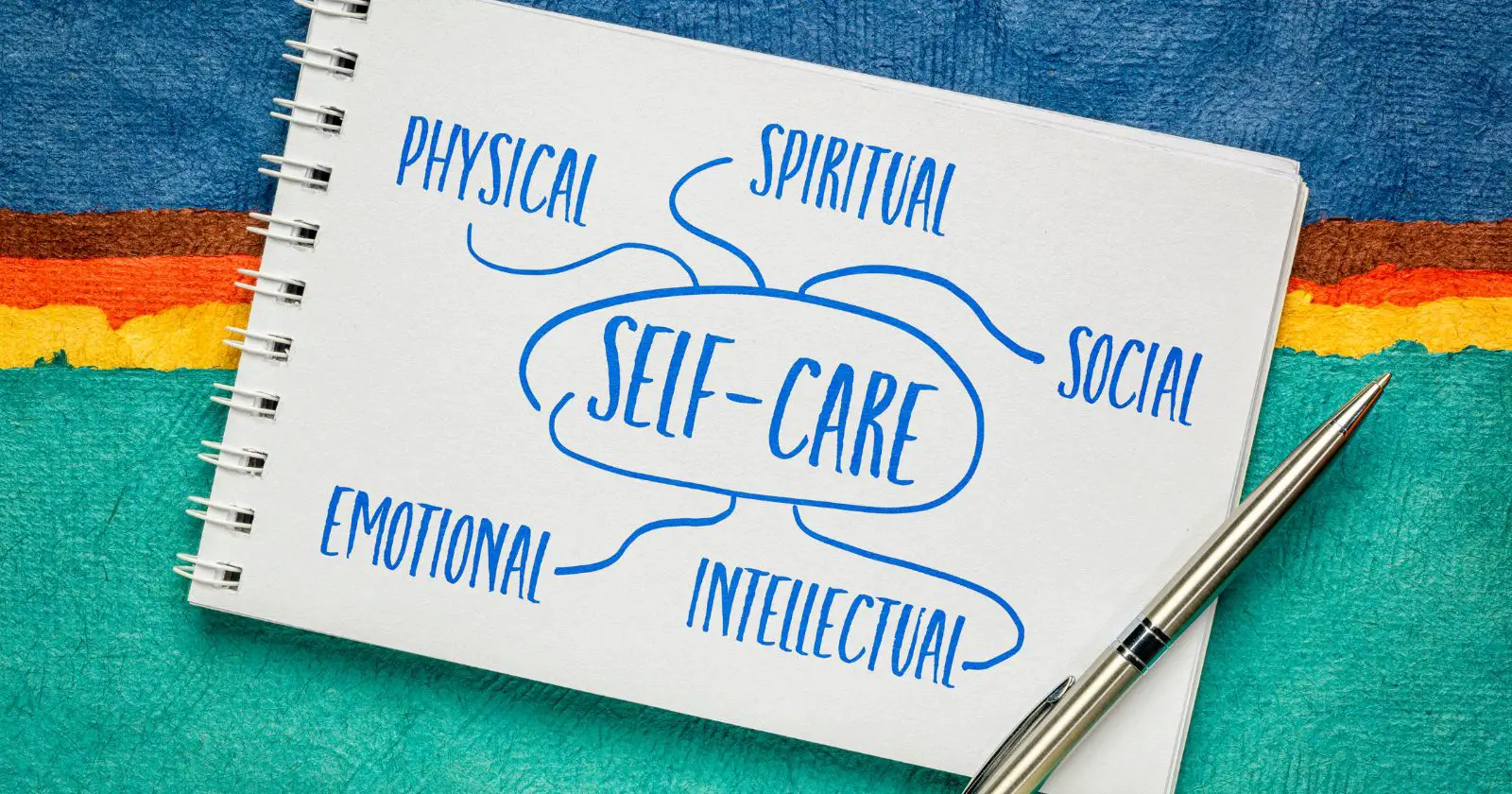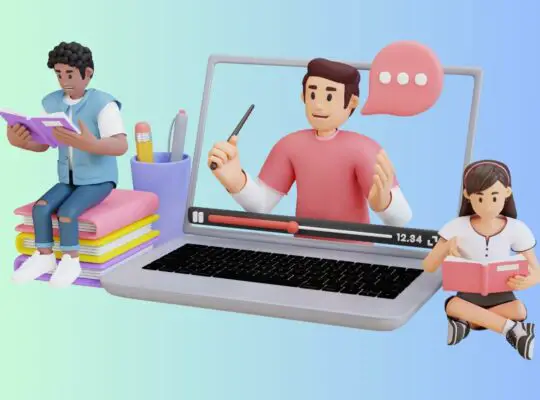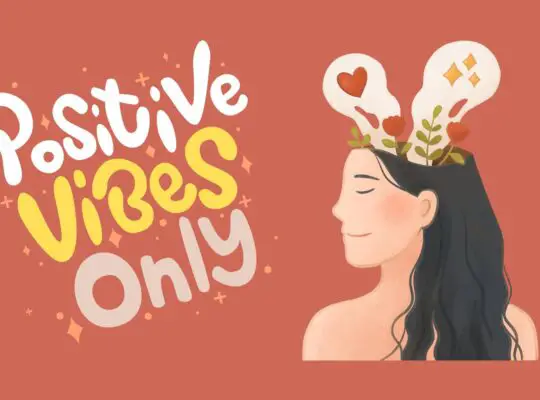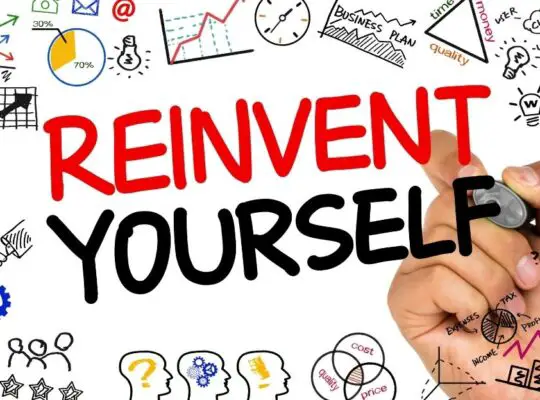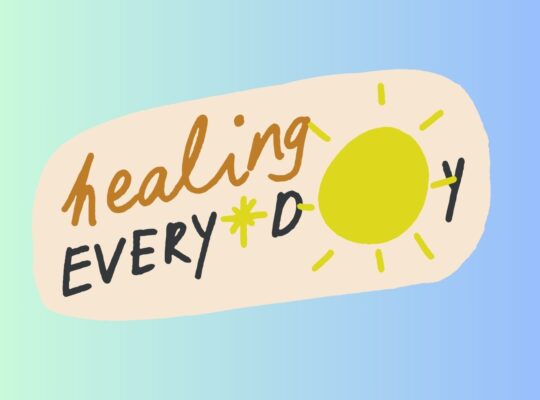It’s what our entire world revolves around, our daily lives depend on it. Yet, so many of us fail to communicate effectively, at home, the office, and with friends. For the next 30 days, you will focus on improving your communication skills. It’s important to remember that communication is more than just talking, it’s about building effective teams, strong relationships, listening, learning how to resolve conflicts.
You can read as many books as you like on the subject of improving your negotiation skills or learning how to improve your interview skills. If you can’t carry on a conversation, then it will make no difference. If you already struggle to communicate effectively, how do you think you’ll manage all of this extra advice?
It’s a recipe for disaster. Before you can expand your repertoire, you must first work on the foundational skill of communication.
There are a number of actions required to improve your communication skills, possibly far more than we can list in this 30-day challenge. However, this is an excellent start and you will see a difference in your ability to communicate in no time at all. Why is communication so important?
You need it in order to live and work with other people. The better we become at understanding the needs, wants, and feelings of others, the easier it becomes to communicate our own. It’s key to ensuring everyone is pulling in the same direction.
Respect, of course, also hinges on your ability to communicate effectively. In daily communication, we tend to mirror the behavior of the person we are speaking to. If they raise their voice, you raise yours. However, this ends a mutual conversation and leaves no room for respect.
You can use your tone of voice to influence others. Speaking of influence, yours will grow when you learn to communicate honestly and attentively. People are more likely
to engage others when we are able to reach an agreement. Learning how to communicate will make you more comfortable with conflict. We all have different talents and when you work with others, you can accomplish much more. Unfortunately, conflict is inevitable.
With your communication skills, however, you will be able to listen to others and find compromises to move forward.
Every word you speak and action you take will echo in your mind for days, perhaps weeks, maybe even years. When you know how to communicate you maintain a more peaceful attitude in your interactions with others. This can help you manage even the most unpleasant situation.
Your new communication skills will help you grow closer to the people you cherish. Ultimately, the purpose of communication has two major components – what you are trying to communicate and what the other person is trying to communicate.
With the distractions we face on a daily basis, it’s difficult enough to know what you yourself want.
How on earth can you determine the needs and wants of others? Communication.
Beware. This will be challenging. It won’t be easy to undertake all of these tasks, and it’s very likely that you will feel uncomfortable.
That’s okay, stepping outside your comfort zone is never an enjoyable process, but it is what growth looks like. Nothing worth doing will be found on the easy path, you’ll find it on the road less traveled.
That’s the point, if it was easy, everyone would be doing it. It’s key that you understand why improving your communication skills is so challenging. This will help you extend patience to both yourself and others.
Also see: Check out our best 30 Day Challenges for Self Improvement.
Firstly, communication requires effort because it’s a mentally demanding process. There are two needs involved and sometimes they overlap and sometimes they are at complete odds with each other. A higher communication skill will make this process simpler.
Secondly, it isn’t immediate. Your communication skills have been woven deeply into your personality, beginning in your childhood. Learning a new way to communicate takes time.
Thirdly, self-awareness and self-observation are required when it comes to effective communication. We have to be able to observe others, the room, the world around us, and ourselves, all while conversing. That takes practice!
Finally, how can you learn and practice new communication skills when you’re surrounded by terrible examples? Television and movies aren’t a good example of effective communication! So, don’t look to them for help. Instead, you have to use your interpersonal skills, a measure of compassion, and increase your communication skills in order to relate to others and do the job effectively.
This journey will be a difficult one, but it will be worth your time and effort.
Day One – Learning to Listen
Today, your focus will be on listening.
• Before you speak, listen. Listen carefully. Before you express your point of view or your experience, acknowledge what the other person is saying. You don’t have to agree with them to do this.
What this does is ensures that you have the attention of the other person as well as they have yours. Even in tense situations, you can listen and briefly restate their point before you go onto express your own opinion.
Do this in each and every conversation that you have throughout the day, even if it’s with your partner, best friend or child! Remember, by acknowledging their feelings or thoughts, you aren’t endorsing them. You can hear opinions counter to your own while maintaining your sense of self.
Read more: 30 Day Challenge – Creating An Abundance Mindset
Day Two – An Invitation To Converse
Yesterday, you exercised your ability to listen actively.
Now it’s time to reduce the likelihood of misunderstandings. To reduce this likelihood and always engage a willing partner, you can invite someone to have a conversation.
In your invitation to converse, be sure to state the nature or purpose of the conversation. If you are about to have an important conversation with someone, it’s important that they understand the gravity of it so that they can prepare themselves for it.
The greater the importance, the greater the weight on your conversation partner. It’s vital they too can see the big picture. They will play their role in the conversation more appropriately if you are clear in your intentions, especially when it comes to the role you expect them to play.
For example, if you need to have an emotional conversation with someone, it can make a major difference to the other person if you briefly explain the intention of your conversation and ask them to join you.
It needn’t be a stiff, awkward moment either. It can be as simple as “I’d like to speak to you for a moment about [brief explanation of the subject].” You can ask if now is a good time or if another time would be more appropriate. The point is that you are expanding your conversation and practicing.
You can take this step deeper. Try to think about your conversational partners as your equal, no matter who they are. Their choice to converse with you shouldn’t be an obligation, rather, it should be a gift.
Your intention to hold a conversation shouldn’t be to demean someone, punish them or tear them down. Even if you are in a position of power and disciplining them, you can do so in a way that remembers their humanity.
Read more: 30 Day Challenge For A More Confident You
Day Three – Expressing Yourself
Slow down. Be clear and complete in your communication. Provide more information for your listener by using I statements.
You gain the empathy of others when you use “I statements” to explain what you’re thinking and feeling. Communicate what you’re experiencing, hearing or seeing with an I statement. Follow that up by using an I statement to communicate your emotions.
Continue using an I statement as you explain how your want or need supports those emotions. Use an I statement to get their action, commitment or information. Finally, use an I statement to explain the positive result of their cooperation in future.
What does that look like in practice? You asked your partner to pick up your child from practice, but they forgot and called you last minute to do it. You have to completely change your plans in order to do this, and you are annoyed at their lack of respect for your timeline.
When you get home, you can hold a conversation to address this. Using I statements may look something like this “I had to interrupt my day and I feel disappointed and annoyed by that because I had intended to start making dinner. In future, I would ask that you stick to our agreements so that I can make dinner at an appropriate time for everyone.” Or, something along those lines.
When you have an active listener and you learn to communicate properly, you share your experience and it puts them in your shoes. It’s easier for others to grasp your annoyance and feelings when you put it in terms they can understand.
There’s a cause and effect here that you can communicate as in the example above. This tactic will also serve you well in expressing gratitude for others, and in problem- solving.
You may think this is time-consuming, however, as you practice it will become your normal mode of communication and will take no longer than your normal method. Especially when you factor in the time it takes to repair the damage of an argument due to misunderstandings.
Read more: 30 Day Positive Experiences Challenge
Day Four – Turning A Complaint Into A Special Request
This isn’t just about your criticisms and complaints, it’s also about other people. It’s easier to gain cooperation when you use positive language.
So, instead of saying don’t do this, say let’s try this. Whenever and wherever possible, you should use action language in order to spur change. A special request is much
easier for people to digest than criticisms and complaints. Think about how differently you would react if others framed their complaints in this way. Take it a step further by explaining the special request’s purpose, “let’s try this so that” or something along those lines.
When you are on the receiving end of complaints or criticism, you can translate them in your head into special requests.
Read more: 30 Day Challenge To Create Life Balance
Day Five – Open-Ended Questions
When you’re conversing with others use open-ended questions. This will invite creativity to the conversation and help draw others out of their shell. Not everyone feels comfortable holding a conversation so, in some cases, you will need to tease information out of them.
A yes or no question shuts people down. Instead, use open-ended or incisive questions to invite them to join a longer conversation. Asking someone if they enjoyed a movie isn’t going to evoke the same response as asking them how they liked it.
It moves the answer from a simple yes or no into a deeper discussion about a movie. Questions are a powerful tool and we often under-use them simply because we don’t want to be perceived as nosy.
Who, what, where, why and how. Do you know when it’s appropriate to use them? We often allow our emotions to cloud the way we ask questions. For example, your teenage daughter comes home and announces she’s pregnant.
You should probably ask when and how, but instead, you ask why, why are you doing this to us? This shuts down any meaningful conversation. Questions should bear fruits.
Practice using the appropriate questions at the right times to learn more about the people around you. This is something you can easily practice at work and at home. Really pay attention to what people are saying to you and engage them with questions to discover more.
Read more: 30 Day Challenge To Open Your Mind To All That Is Possible
Day Six – Express Gratitude
In order to build strong and satisfying relationships, you should express gratitude for the people in your life. Life is a continuous fix-it job. We will always need to attend to issues, breakdowns, and problems.
However, it’s easy to only focus on that. Instead, try to shift your focus to all of the positive aspects of your relationships.
Why do you appreciate the people in your life? How often do you tell them? An important part of communication is being able to stand up and express gratitude for others. That goes for your friends and your colleagues, employees, etc.
Read more: 30 Day Self Care Challenge
Day Seven – Make It An Everyday Thing
At this point, better communication should be an everyday practice. Today, you should put all of the past activities into practice.
You may find that you are already doing so, but today you should make a conscious effort to ensure you’re doing so. They won’t become second nature unless you practice. This will be the most challenging task you face so far, but that’s okay because you’ve been practicing daily! You’re ready.
Think of every conversation as an opportunity to improve your communication skills. Every encounter is an opportunity to progress, to grow.
Read more: 30 Day Self Validation Challenge
Day Eight – Nonverbal Communication
It’s time to expand your learning into the wide world of nonverbal communication. If communication was graded, your nonverbal would count towards half your grade at the very least. Your body language communicates just as much of your message as your words do.
These physical cues can give the game away if your words don’t match. Therefore, it’s vital you adopt the proper posture. Today, make an effort to avoid crossing your arms or slouching.
Maintain eye contact with the people that you converse with today and stand up straight.
Read More: 30 Day Challenge To Build Self Trust
Day Nine – Over-Communicating
Sometimes it’s necessary to overdo it when you are communicating. We often overestimate just how much listeners hear and understand.
So, if you expect your audience, whether it be of one or a large group, to absorb half of what you communicate… know that it will be much less.
In addition to communicating clearly, you have to over-do it when it comes to new ideas, opinions or thoughts. Try this at work with any meeting or presentation you may have scheduled. If you don’t have anything on the calendar, hold a family meeting to try this out.
Read more: 30 Day Challenge To Reinvent Yourself
Day Ten – Forget Visual Aids
People often fall into the trap of believing that visual aids will support the message. This will muddy the waters of your message. When you communicate with others, leave visual aids out.
Forget a PowerPoint presentation, don’t even think about graphs and charts. Use your words to create a compelling story and rely on your nonverbal communication skills to support the message you are trying to convey.
This isn’t just advice for the workplace either. Parents often attempt to rely on visual aids to get through to their children because it feels less awkward that way.
Embrace the awkward and instead try clearly communicating instead. You may have to go out of your way to practice this one today, but you’ll do great!
Read more: 30 Day Challenge of Empowering Habits
Day Eleven – Feedback: The Breakfast of Champions
It’s utterly terrifying, but it’s necessary. Seek honest feedback from others.
Now, if you have been trying to improve your communication skills at work, ask your colleagues for a bit of feedback. If it’s something you have been working on in your personal life, turn to friends you know will provide you with an honest response.
This is simply a checkpoint to see how you have been doing since you started this challenge. It’s critical to your progress and will help you determine whether you are progressing.
If there are negative comments, don’t worry, now is the time to put them into action!
Read more: 30 Day Challenge To Boost Your Emotional Health
Day Twelve – Engaging the Audience
Whether you are holding a conversation with one person or multiple, it’s important to engage them. It’s easy to see when their attention starts to wander.
The fidgeting begins, they check their watches, look at their phones, and you know that no one is paying attention. It’s no wonder, we have a limited attention span, you can’t expect us to pay attention forever. To be more effective in communicating, you
can’t drone on at people. Conversations should be interactive, not one-sided. Don’t speak for too long without allowing space for others to process what you’ve said and respond.
Think about how you would feel if you were in their shoes. You’d stop listening, too, wouldn’t you?
Read more: 30 Day Challenge To Improve Your Self Discipline
Day Thirteen – Key Points
It’s easy to lose control of a conversation, especially when you can’t keep track of your own thoughts. Before you enter into a conversation, make a note of a few of your key points.
You should always start and end the conversation with those points to ensure the listener is receiving your message loud and clear.
Read more: 30 Day Challenge To Improve Your Thoughts
Day Fourteen – Timing is Everything
If you want an excellent example of great communication, think about the most popular comedians. You don’t have to like their brand of comedy, but you can appreciate their ability to use timing to stick the joke.
That’s what you’re going to do today – take inspiration from a comedian. Watch a stand-up comic do their thing (if you subscribe to a streaming service, it won’t be too difficult to do this). Watch as they feel the audience and shift into a new topic or choose to reiterate a point.
Once you are suitably inspired, try it out for yourself. Do you read the room and change the subject when things are getting hairy or do you attempt to stick it out?
Read more: 30 Day Challenge To Set Your Growth Mindset
Day Fifteen – Learn to Ad-lib
You’re doing well, but it’s time to expand your repertoire. Let’s use lawyers as an example. When they present, they don’t have their arguments written out word for word. Rather, they have a series of topics they plan to cover.
This allows them a bit of flexibility in terms of how they choose to communicate a specific point based on the reaction they receive from the jury, judge, or gallery.
This extemporaneous speaking style is something that we could all use in our communication skills toolbox. What it does is allows for more natural communication.
Day Sixteen – Don’t Go For Cheap Laughs
This is something that is more specific to business conversations. When you’re in the comfort of your own home or conversing with your friends, you can be as funny as you like. However, in business situations, it’s important to convey the right message. That doesn’t mean that humor is completely out of the question.
What it does mean, however, is that your conversation should earn respect. It’s tempting to lighten the mood with a quick joke, but you should know when it’s appropriate to do so.
Think about the message you’re trying to convey and how you want the other people involved in the conversation to walk away feeling.
Day Seventeen – No Devices
This should go without saying and perhaps we should have brought it up sooner. However, you’ve been working hard on your communication skills for the last two weeks. Now is the time to put your devices away.
You’re probably thinking that you have already done that. You might not be guilty of playing with your phone while you’re holding professional conversations at work. Do you afford your family and friends the same courtesy?
Probably not. That changes today. Today, in every conversation you have with your children, partner, friends or family, keep your device firmly in your pocket. Give that person your full attention.
You can’t pay attention to their words, tone, and body language if your head is in a device. There will be time for your gadgets later.
Day Eighteen – Inspirations
Think about some of the great communicators in your life. Today, pay attention to how they communicate, in person, via email, and even over the phone.
Listen to the tone they adopt, how they move their body, and the language they use. Where can you apply these to your own communication style?
Day Nineteen – Read
You can choose what you read, and whether it be a magazine, novel, newspaper, blog or a biography, just take notes.
Look at how other people write, the language that they choose to use to present their information, and how they present the material. The more content you consume, the better you will understand communication.
You will find certain news sites use fear to communicate a message, while others simply present facts and others combine a mixture of the two. A biography typically aims to inform, and magazines are often filler stories between bigger articles.
Look at how each of those things is presented and how the writer communicates. There are different styles, which would you prefer to adopt?
Day Twenty – Making Eye Contact
We already briefly touched on eye contact; however, we want you to focus on this in more detail today. Eye contact is important in conversation because it signifies that you care and that you’re listening.
Do remember, though, to break eye contact regularly otherwise it could be perceived as intimidating.
Eye contact is something that a lot of people struggle with. Today, make an effort to make eye contact with everyone you speak to, from the barista at your favorite coffee shop to your boss and colleagues, and your family over dinner.
Day Twenty-One – Make a Recording
This may be the most awkward task you will find in your 30-day challenge, but it will be worth it.
Now, you can do this one of two ways:
- You can record a conversation you hold with a friend or loved one.
- You can roleplay yourself and another person.
- If you do record someone else, make sure they know and are comfortable with the situation first.
- Just listen back to your recording and see what you think.
- Were you speaking too fast?
- Did you interrupt often?
• Did you make an effort to listen or were you quick to speak your mind at the first opportunity, completely disregarding what the other person had to say?
This isn’t an exercise to beat yourself up about, instead, it’s one where you should look for areas to improve on.
Day Twenty-Two – Exercise Empathy
We have already discussed that communication and conversation is a two-way street.
Today, try practicing taking the opposite stance. This will help you navigate anxiety and difficulty that commonly arises when we’re trying to communicate with others.
Like, when your partner says they’re too tired to continue the conversation.
Empathy will help you understand the unspoken and read between the lines, which will help you respond more appropriately and effectively.
Day Twenty-Three – Validation
People feel the way they do for a reason. Just because they have reacted differently than you would in the same situation, does not make their feelings less valid.
You have to validate their emotions, even if you don’t agree with them. The point is that you let them know you hear them and that you accept their perspective.
Day Twenty-Four – Body Language
We already touched on your body language, but it’s important that you take note of the body language of others as well.
Look at their facial expressions, are they frowning or smiles? Is their neutral face hiding a clue?
What about their posture and position? You will see plenty of body language cues in others if you’re truly paying attention. Make a conscious effort to notice body language in every conversation you hold today.
Day Twenty-Five – Slowly, but Loudly
Poor communicators often speak quietly, mumble, and rush through what they have to say.
It’s clear they’re not comfortable in the conversation and it’s off-putting to the listener. Have you ever been accused of mumbling?
Pay attention to how you speak, ensure that you speak loudly (but don’t shout) and clearly. Slow it down just a little bit. Most of us speak far too quickly anyway.
Day Twenty-Six – Roleplay
Now, you’ll remember we suggested you roleplay in order to record a conversation if you can’t find a willing participant. Now we’re going to cover roleplay in a bit more detail. The greatest aspect of it is that it allows you to practice.
You will need another person to join you in this, so enlist someone you trust to roleplay a difficult conversation. Try it a few times and ask for feedback after every attempt.
When you prepare for a difficult conversation it will build your confidence and make it easier to handle. The more attention you pay to your own expression, the better you will be at effective communication.
Day Twenty-Seven – Less Filler
We are all guilty of inserting um, ah, like, and even I mean… These annoying habits are a natural response from the brain when we lose our train of thought.
Instead of using filler words, take a pause and try again. A pause will seem more awkward to you than it will to anyone listening and it’s certainly an improvement upon filler words like ah and um.
Today, pay attention to how often you use filler words and try to reduce them.
Day Twenty-Eight – Questions & Repetition
We have already highlighted the importance of asking open-ended questions. It bears repeating. There’s a reason. It’s easy to drift into a daydream when someone is speaking.
It’s just as easy to completely mishear or misunderstand what the speaker is trying to communicate.
So, by asking questions and repeating back what you heard, you are making sure you have the key pieces of information.
You’re also letting them know you really are listening. This practice will keep you on your toes and engaged in conversation so, practice this today in every conversation you have.
Day Twenty-Nine – The Audience
You probably speak to your children differently than you do your boss, just like you have a different tone and tact for your colleagues versus your partner. At least, you should. The greatest communicators can adjust how they speak based on their audience.
Everyone should have a different communication style to rely on when dealing with the different people in their lives. The point of this is that you think about whom you’re speaking to when you try to convey your message.
Today, take notice of how differently you communicate with all of the people in your life.
Day Thirty – Brief, But Specific
Are you familiar with the acronym BRIEF? Background. Reason. Information. End. Follow-up.
This is how you should draft an email and hold a conversation over the phone or in person. It’s just a smart policy to have.
It’s all about being clear and concise.
In fact, there are seven Cs of communication. So, make a note of these and keep them close to you at all times.
Clear, concise, coherent, courteous, correct, concrete, and complete. Try to make sure that all of your communications adhere to this.


